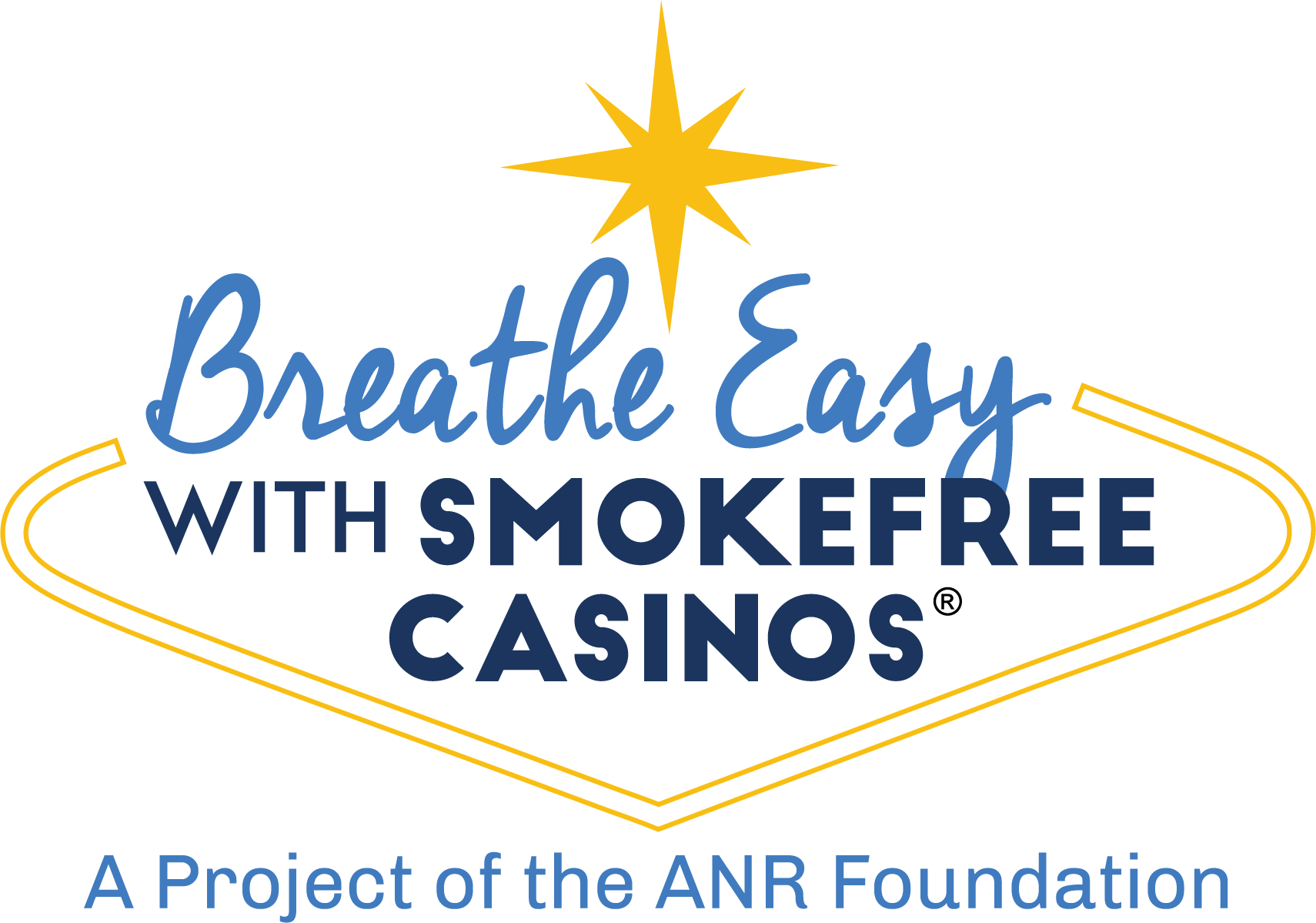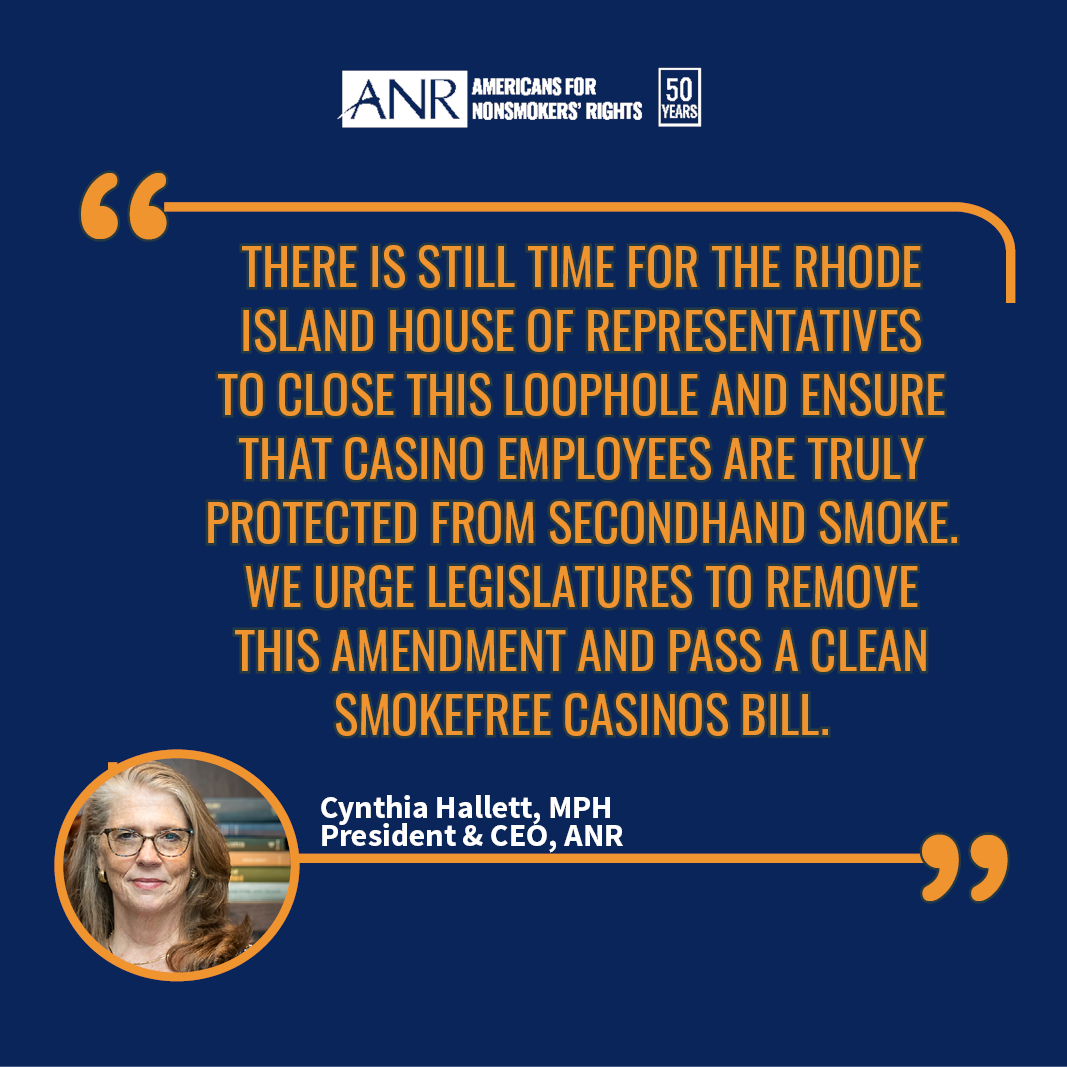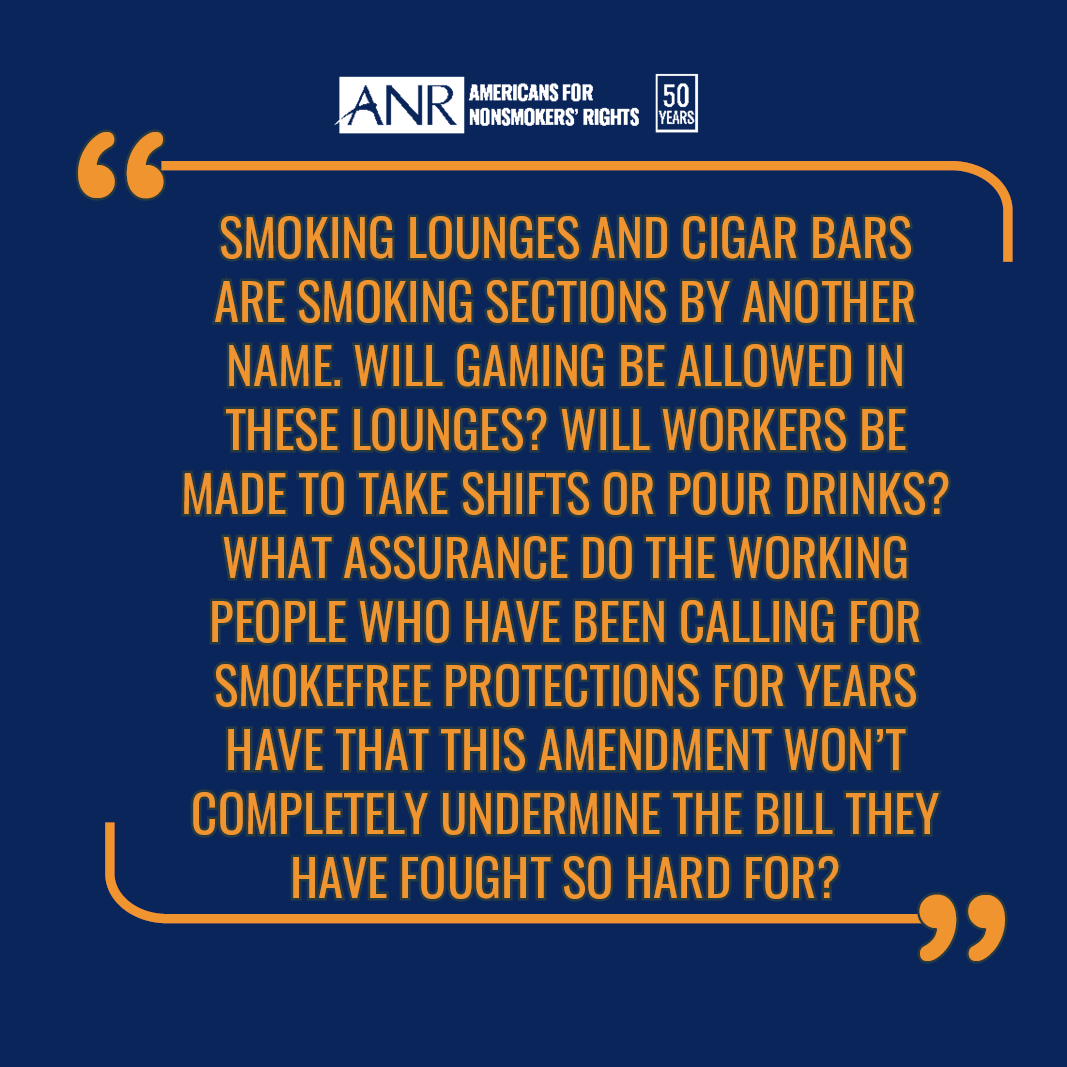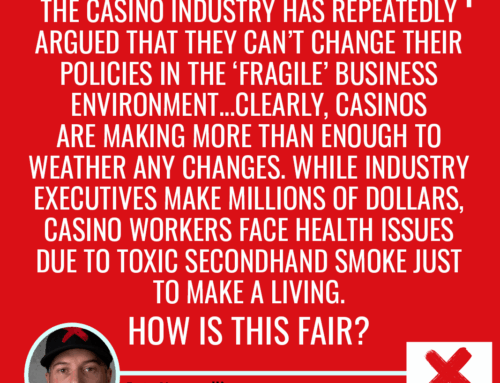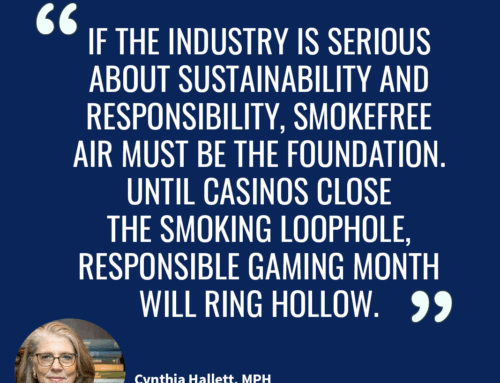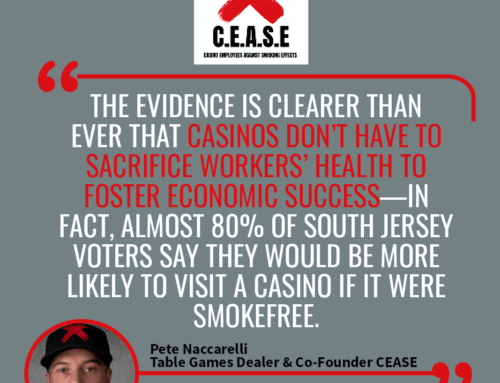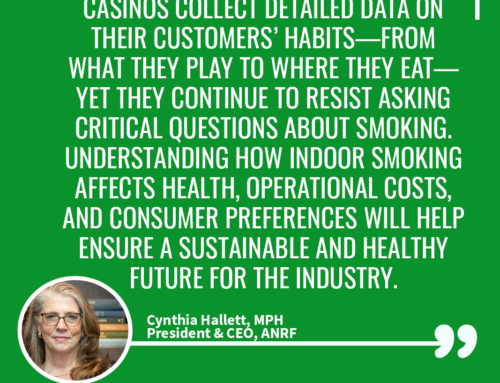Last Minute Amendment Leaves the Door Open for Casinos to Continue Exposing Worker to Dangerous Secondhand Smoke
June 18, 2025
Contact: press@no-smoke.org
Providence, RI—In a unanimous vote, the Rhode Island Senate today passed S 0188, which would amend the state’s Public Health and Workplace Safety Act to ensure that the smokefree protections afforded to every other workplace extend to casinos. Unfortunately, a last-minute amendment allows casinos to have a smoking lounge — an enclosed area “including, but not limited to, a cigar bar.” This vague language would open the door for casinos to continue forcing employees to work in smoke-filled spaces. Moreover, the bill would delay implementation of smokefree protections for 18 months, giving the casino industry ample time to pull strings to repeal the bill.
Cynthia Hallett, president and CEO of Americans for Nonsmokers’ Rights, issued the following statement:
“Time and again, the casino industry and big tobacco have worked to undermine and weaken the rules that protect people from the deadly impact of secondhand smoke. Smoking lounges and cigar bars are smoking sections by another name. Will gaming be allowed in these lounges? Will workers be made to take shifts or pour drinks? What assurance do the working people who have been calling for smokefree protections for years have that this amendment won’t completely undermine the bill they have fought so hard for?
“There is no safe level of secondhand smoke exposure. Smoke drifts out of even the most carefully cordoned-off areas, and ventilation may mask odors but does not mitigate health risks. We applaud the efforts of Senator Sosnowski and Senate Majority Leader Ciccone to make progress in Rhode Island—but no one should have to choose between their health and a paycheck. There is still time for the Rhode Island House of Representatives to close this loophole and ensure that casino employees are truly protected from secondhand smoke. We urge legislatures to remove this amendment and pass a clean smokefree casinos bill.”
Background
Tobacco use and secondhand smoke exposure kills nearly 500,000 Americans every year. Secondhand smoke puts adults who don’t smoke at risk of coronary heart disease, stroke, and lung cancer. According to the CDC, “There is no risk-free level of secondhand smoke. Even brief exposure can cause immediate harm.”
Studies have consistently shown that exposure to secondhand smoke increases the risk of heart disease, lung cancer, and respiratory illnesses. Recent research by the CDC has affirmed that prohibiting smoking throughout the entirety of an establishment is the only effective way to protect workers from these harms.
Advanced air filtration systems do protect against the well-established harms of secondhand smoke. In fact, the engineers who design those ventilation systems say they don’t solve the problem. These engineers, from the American Society of Heating, Refrigerating and Air-Conditioning Engineers (ASHRAE), warn that even the best filtration and ventilation systems “are not effective against secondhand smoke” and “can reduce only odor and discomfort but cannot eliminate exposure… There is no currently available or reasonably anticipated ventilation or air cleaning system that can adequately control or significantly reduce the health risks of [environmental tobacco smoke] to an acceptable level.”
###
Americans for Nonsmokers’ Rights (ANR) is a member-supported, non-profit advocacy group that has been working for nearly 50 years, since 1976, to protect everyone’s right to breathe nontoxic air in workplaces and public places, from offices and airplanes to restaurants, bars, and casinos. ANR has continuously shined a light on the tobacco industry’s interference with sound and life-saving public health measures and successfully protected 61% of the population with local or statewide smokefree workplace, restaurant, and bar laws. ANR aims to close gaps in smokefree protections for workers in all workplaces, including bars, music venues, casinos, and hotels. For more information, please visit https://nonsmokersrights.org and https://smokefreecasinos.org.
